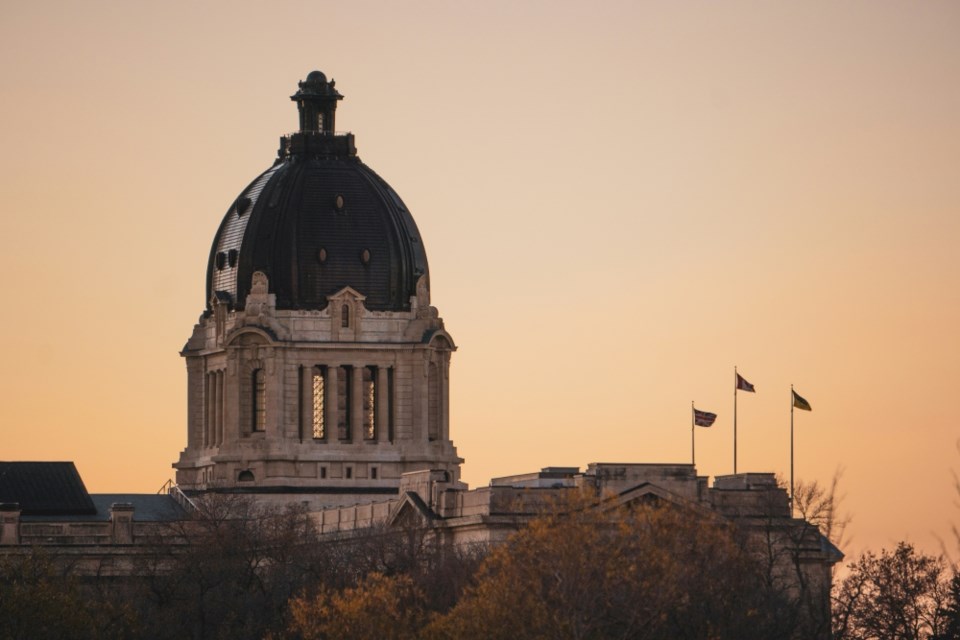It's just about election time in Saskatchewan.
Residents of this province are slated to go to the polls on Oct. 28. The governing Saskatchewan Party has become the province's proverbial natural governing party, as they have won the last four elections, three of them in decisive fashion.
The opposition New Democratic Party – who was the natural governing party – will be looking to get back into power. They've been in opposition for 17 years, an eternity for a party that guided this province for the vast majority of six decades.
Then you'll have the other parties – the Buffalo Party, the Progressive Conservatives, the Saskatchewan United Party, the Progress Party and the Green Party – looking to have a presence in the Saskatchewan legislature.
When looking back on the province's history, it's interesting to note the Liberals were the initial "natural governing party". They won Saskatchewan's first six elections and eight of the first nine. The province's first premier, Sir Walter Scott, envisioned Saskatchewan as a province with tens of millions of people and built the Saskatchewan legislative building in Regina to meet his ambitions.
How times have changed for the centrist party? The last time the Liberals won a seat in the Saskatchewan legislature was in 1999; they promptly formed a coalition with the New Democratic Party, a move that angered many Liberal supporters. They've had a full slate of candidates just once since the 2003 election. They had just three candidates in the last election.
And they have a new name, too: the Saskatchewan Progress Party. Thanks to the disdain many people in this province have for Prime Minister Justin Trudeau and the federal Liberals, the provincial party felt a rebrand was necessary.
The NDP was elected for the first time in 1944 and dominated the election results until 2007. They were out of power for about seven years from 1964-1971, when the Liberals regained control of the legislature, and from 1982-1991, when the Progressive Conservatives guided the province. (The PC victory in 1982 marked the first time Saskatchewan had a Conservative government since 1929-1934 – stunning when you look at the current political landscape, especially in rural ridings).
And while the NDP now languishes in rural ridings, that wasn't always the case, either. You don't win 47 of 52 seats, like they did in 1944, or 45 of 60 seats, like they did in 1952, without strong support outside of the big cities.
One thing to note about the NDP's run of success is they captured at least 50 per cent of the vote only four times (1944, 1952, 1971 and 1992). They had 40.8 per cent of the vote in 1960 and 40.1 per cent in 1975. They were elected, in part, because the Conservatives and the Liberals split the vote. When five Liberals and four Tories teamed up to form the Saskatchewan Party in 1997, the vote-splitting days were over.
Which brings us to the Sask. Party. They've won the last four elections. They have actually had at least 50 per cent of the vote all four times, meaning they've done it as often as the NDP. They have had at least 61 per cent of the vote the last three elections – the most convincing electoral victories in Saskatchewan history. They have built a dynasty. And they should be favoured to win this election, because of their support in rural Saskatchewan.
But it will be a much closer election. The NDP has a realistic shot at winning their highest number of seats since they captured 20 in 2007. They have the majority of the seats in Regina and don't be surprised if they win at least half of the seats in Saskatoon. But for them to win on election night, they're likely going to need to virtually sweep Saskatoon, Regina, Moose Jaw, Prince Albert and the far north ridings, which would give them 32 seats, or have the Buffalo Party or the Saskatchewan United Party knock off a few Saskatchewan Party candidates in rural ridings.
It's going to be an interesting election, perhaps the most intriguing since 2007 or even 2003. And while most expect the Sask. Party to win again, don't expect the runaway victories we've seen in recent years.




